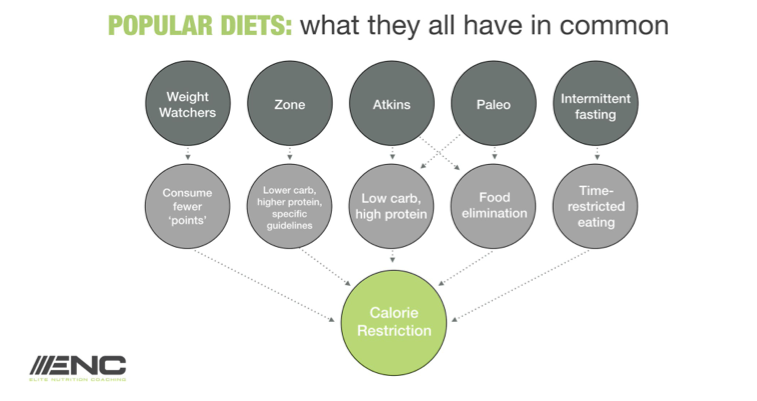Calorie count or Keto?

mcafton
Posts: 190 Member
I started out here counting calories, but stalled out. I exercise 3 or 4 days a week and in the summer bike a lot. I probably ride between 60 and 100 miles a week. I had lost around 20 pounds, then stalled. I hadn't been counting my calories as well and would really take advantage of the 1000 or so calorie burn bike rides as an excuse to eat more. I then decided to cut carbs way back, and have lost a few pounds, but not what I was expecting. Some people on the keto diets seem to lose weight so quickly. My carbs are way down, but I'm wondering if I'm eating too many calories. I also worry about cholesterol going up from long term fatty diet. I'm thinking about going back to calorie counting and being more strict. Just wondering what some of you think of as the pros and cons of calories vs keto. If I cheat with calorie counting that's a bad day, but if I cheat on the low carb diet it takes a week or so to get back to where I was and recoup.
3
Replies
-
I've only just started learning about keto and it seems fascinating! Also, the results that I see from people who've adopted it for the long term seem to say that all that I've known about a 'healthy' diet so far has been the wrong side up! I'm going to give Keto a serious try over the next couple of months so will have more to share then.
As of now, however, it seems to me that Keto is more about managing macros once a reasonable 'low-carb' limit is set rather than just counting calories. So, depending on the overall goal, whether weight-loss or weight-gain or muscle-gain, etc., one has to identify the appropriate number of calories for one's body-type (ecto/ meso/ endo) and then work out the macros backwards from that number. If you stick to the macros and the calorie goal, then you should get closer to the goal faster than any other diet (if you believe the keto-ers).14 -
However you eat, if you have a weight loss goal you need to be in a calorie deficit. If you can't achieve that intuitively, you need to log and track.
You probably stalled due to inaccurate logging, and you may have been overestimating calorie burns from exercise.
People on keto/low carb lose weight quickly initially as they lose water weight with the reduction of carbs. Fat loss happens at the same rate.
To achieve your goals, I would start to log and track accurately. Account for everything - weigh solids, measure liquids. Use accurate database entries. If you want to eat lower carb, do that, but it's not necessary for weight loss.30 -
livingleanlivingclean wrote: »However you eat, if you have a weight loss goal you need to be in a calorie deficit. If you can't achieve that intuitively, you need to log and track.
You probably stalled due to inaccurate logging, and you may have been overestimating calorie burns from exercise.
People on keto/low carb lose weight quickly initially as they lose water weight with the reduction of carbs. Fat loss happens at the same rate.
To achieve your goals, I would start to log and track accurately. Account for everything - weigh solids, measure liquids. Use accurate database entries. If you want to eat lower carb, do that, but it's not necessary for weight loss.
Thanks. I was doing well counting calories, then kind of slacked off. of course, that's when I stalled out. was maintaining, but not losing weight. I'm sure some muscle gain accounts for it as well, but I definitely need to get back to recording and tracking my calories.1 -
livingleanlivingclean wrote: »However you eat, if you have a weight loss goal you need to be in a calorie deficit. If you can't achieve that intuitively, you need to log and track.
You probably stalled due to inaccurate logging, and you may have been overestimating calorie burns from exercise.
People on keto/low carb lose weight quickly initially as they lose water weight with the reduction of carbs. Fat loss happens at the same rate.
To achieve your goals, I would start to log and track accurately. Account for everything - weigh solids, measure liquids. Use accurate database entries. If you want to eat lower carb, do that, but it's not necessary for weight loss.
Thanks. Hope it goes well for you. I am learning that there is definitely more to it than just cutting carbs. I will look more into that.0 -
I started out here counting calories, but stalled out. I exercise 3 or 4 days a week and in the summer bike a lot. I probably ride between 60 and 100 miles a week. I had lost around 20 pounds, then stalled. I hadn't been counting my calories as well and would really take advantage of the 1000 or so calorie burn bike rides as an excuse to eat more. I then decided to cut carbs way back, and have lost a few pounds, but not what I was expecting. Some people on the keto diets seem to lose weight so quickly. My carbs are way down, but I'm wondering if I'm eating too many calories. I also worry about cholesterol going up from long term fatty diet. I'm thinking about going back to calorie counting and being more strict. Just wondering what some of you think of as the pros and cons of calories vs keto. If I cheat with calorie counting that's a bad day, but if I cheat on the low carb diet it takes a week or so to get back to where I was and recoup.
You should calorie count even if you do keto... weight loss is about your calorie deficit.20 -
It's not calorie counting or keto. Keto works because it helps some people keep calories down. Some find it happens even if they don't count and consciously limit calories, but many count calories while doing keto (indeed, since you are tracking carbs anyway and so need to log for that, might as well count calories too).10
-
I am on a KETO diet but I also pay attention to my calories. You have to do both. For *me* Keto works because I'm eating foods that keep me satisfied - so I'm not tempted by empty calories. On average I eat between 1200-1500 a day. I also exercise every day.6
-
If you like to ride distance rides Keto may not be for you. a keto diet has been shown to lower athletic performance. If you want to continue riding distances of any significance, you will be much better served by a diet that is relatively high in carbs.16
-
I consider Keri a lifestyle diet. I say that meaning that if you want to lose, eat in a deficit while in it. While I am not on this diet, my trainer is. He makes sure he consumed a certain amount of calories each day.1
-
Calorie deficit is what will enable you to lose weight, would seem odd not to count what really matters.
Of course if following the food choices in a keto diet allows you to naturally achieve a sustainable calorie deficit then counting wouldn't be necessary but would probably remain useful if only to keep an eye on your chosen macro targets.
As mentioned above keto is not optimal for performance for exercise, you have to work harder for the same power output. You also become carb impaired as you become more fat adapted through your diet. If your goal is simply to complete a ride then it's not really such a big issue.
You might be interested in the monthly cycling challenge thread BTW:
http://community.myfitnesspal.com/en/discussion/10620523/december-2017-biking-cycling-bicycling-challenge/p1
Food preferences make a huge difference to making a diet sustainable and that's very personal. Fat isn't at all satiating to me although many people find that it is (recently my M-I-L gave me a 2,500 cal pack of cashew nuts - I could polish that off in one go no problem at all....). 2,500 cals of starchy carbs would be far more difficult for me but YMMV.
It's great you have managed to maintain despite "slacking off" so that's a real positive.
7 -
If you like to ride distance rides Keto may not be for you. a keto diet has been shown to lower athletic performance. If you want to continue riding distances of any significance, you will be much better served by a diet that is relatively high in carbs.
Thanks for the advice. I've noticed a definite decrease in endurance on the stationary bike the last several weeks. it's cold here so I haven't been riding outside. My cardio isn't as good especially the first several minutes and my legs feel more cramped and gassed.
1 -
Read "The Obesity Code" by Dr. Jason Fung on how weight gain and loss is driven by the hormone insulin, NOT thermogenically by calories. The keto way of eating is about keeping insulin under control so it is the total carbs consumed along with just moderate protein and 65%-80% total daily calories from fat that drives the bodies ability to heal maladies and lose weight. Most people who eat keto stay near their TDEE as part of their eating plan.42
-
Read "The Obesity Code" by Dr. Jason Fung on how weight gain and loss is driven by the hormone insulin, NOT thermogenically by calories. The keto way of eating is about keeping insulin under control so it is the total carbs consumed along with just moderate protein and 65%-80% total daily calories from fat that drives the bodies ability to heal maladies and lose weight. Most people who eat keto stay near their TDEE as part of their eating plan.
If weight gain and loss isn't determined by calories, how do you explain people who lose weight by controlling calories without doing anything to keep their "insulin under control"?17 -
Read "The Obesity Code" by Dr. Jason Fung on how weight gain and loss is driven by the hormone insulin, NOT thermogenically by calories. The keto way of eating is about keeping insulin under control so it is the total carbs consumed along with just moderate protein and 65%-80% total daily calories from fat that drives the bodies ability to heal maladies and lose weight. Most people who eat keto stay near their TDEE as part of their eating plan.
That insulin driving weight gain has been debunked over and over again. For weight loss or gain, calories are king, if you are focusing on the hormones you are majoring in the minors.16 -
Read the book before you judge.
 23
23 -
This content has been removed.
-
I read the study that falsified the insulin theory of obesity.
I don't need to read the book.
Fung is wrong.18 -
maithileesj wrote: »I've only just started learning about keto and it seems fascinating! Also, the results that I see from people who've adopted it for the long term seem to say that all that I've known about a 'healthy' diet so far has been the wrong side up! I'm going to give Keto a serious try over the next couple of months so will have more to share then.
As of now, however, it seems to me that Keto is more about managing macros once a reasonable 'low-carb' limit is set rather than just counting calories. So, depending on the overall goal, whether weight-loss or weight-gain or muscle-gain, etc., one has to identify the appropriate number of calories for one's body-type (ecto/ meso/ endo) and then work out the macros backwards from that number. If you stick to the macros and the calorie goal, then you should get closer to the goal faster than any other diet (if you believe the keto-ers).
"Body type" has no effect on calories or macros. Height, age, gender, activity level, and any medical issues/conditions will have an effect.7 -
Read "The Obesity Code" by Dr. Jason Fung on how weight gain and loss is driven by the hormone insulin, NOT thermogenically by calories. The keto way of eating is about keeping insulin under control so it is the total carbs consumed along with just moderate protein and 65%-80% total daily calories from fat that drives the bodies ability to heal maladies and lose weight. Most people who eat keto stay near their TDEE as part of their eating plan.
Explain how insulin can create and destroy energy. The government would like to know.
And if keto is so magic so healthy explain Jimmy Moore and his obese followers?
I'll leave this from a PhD in Physiology---you know an ACTUAL expert in metabolism, not a person with letters in front of their name from an unrelated field.
11 -
You tube Dr Eric Berg. He explains keto very well.10
-
Early in the thread was some good information, IMO. You'll need to be in a calorie deficit to lose weight on a ketogenic diet - any diet really - but some people find they naturally eat less when low carb, or that there may be a very small faster rate of losing a a certain calorie level (slightly elevated calories burned).
Athletic performance tends to dip slightly in the first few months on a ketogenic diet while one becomes fat adapted. After that, it tends to even out with a possible slight advantage to endurance athletes and a possible slight disadvantage to athletes who rely on explosive, quick movements.
Atkins or Keto Clarity are easy to read places to start. For more science, try The Art and Science of Low Carbohydrate Living or The Art and Science of Low Carbohydrate Performance (both by Phinney and Volek), and the Ketogenic Bible. Peter Attia has a great blog on why cholesterol is not a problem on a low carb diet (unless you have familial hypercholesterolemia affecting it). Tuit Nutrition is quite good too.
Also the Low Carber Daily and Keto MFP groups can help you out a lot
http://community.myfitnesspal.com/en/group/1143-keto
http://community.myfitnesspal.com/en/group/394-low-carber-daily-forum-the-lcd-group
9 -
Please explain how there are slightly elevated calories burned? You are taking anecdotal, observational "evidence" based on personal experience that could be influenced by any number of factors not related to what you're claiming and extrapolating something that's not necessarily true based on scientific evidence.
In fact, in controlled lab studies, a slight fat loss advantage went to low fat diets, not low carb diets, though over time, they perform roughly equally.
You keep making claims about keto that are unfounded.
Lest anyone get me wrong here, I am not anti-keto. I am against promoting false information regarding it, and you keep trying to make it superior in some ways in order to promote it. Why?
Why can't it simply be a valid choice and preference for some people?13 -
I want to try Keto but the side effects are awful. Bad breath, hair loss, possible saggy skin and Ketones are known toxic to the brain if uncontrolled. I modified my diet into high fiber, high protein, low glycemic carb sources and low but healthy fat (olive oil). I eat fruits and vegetables daily. Carbs with black or wild rice. Protein- chicken, turkey and salmon. With this diet, I can exercise for more than 2 hours and my hypertension and early signs of Diabetes was fading away. From systolic 160-180, now its around 110-120. I already lost 27 lbs in less than 2 months and I feel a lot better and healthier. Their are tons of healthy food out there. Maybe limit your calories to around 1600.6
-
I’m going to go with, whatever you can stick to and make it feel easy and the pieces fall into place, increasing health and happiness, that’s what you should do.

For ME that’s a slower rate of loss and counting calories.5 -
Early in the thread was some good information, IMO. You'll need to be in a calorie deficit to lose weight on a ketogenic diet - any diet really - but some people find they naturally eat less when low carb, or that there may be a very small faster rate of losing a a certain calorie level (slightly elevated calories burned).
Athletic performance tends to dip slightly in the first few months on a ketogenic diet while one becomes fat adapted. After that, it tends to even out with a possible slight advantage to endurance athletes and a possible slight disadvantage to athletes who rely on explosive, quick movements.
Atkins or Keto Clarity are easy to read places to start. For more science, try The Art and Science of Low Carbohydrate Living or The Art and Science of Low Carbohydrate Performance (both by Phinney and Volek), and the Ketogenic Bible. Peter Attia has a great blog on why cholesterol is not a problem on a low carb diet (unless you have familial hypercholesterolemia affecting it). Tuit Nutrition is quite good too.
Also the Low Carber Daily and Keto MFP groups can help you out a lot
http://community.myfitnesspal.com/en/group/1143-keto
http://community.myfitnesspal.com/en/group/394-low-carber-daily-forum-the-lcd-group
Please post credible studies that indicate any improved performance for endurance athletes. This was discussed in depth in a thread you participated in last week where you made this same claim. All you posted in support was 1 study that did not substantiate your claim while others posted mulitple ones that disproved it. Most elite endurance athletes who practice keto, carb load before competitions due to performance fall off from keto.12 -
Early in the thread was some good information, IMO. You'll need to be in a calorie deficit to lose weight on a ketogenic diet - any diet really - but some people find they naturally eat less when low carb, or that there may be a very small faster rate of losing a a certain calorie level (slightly elevated calories burned).
Athletic performance tends to dip slightly in the first few months on a ketogenic diet while one becomes fat adapted. After that, it tends to even out with a possible slight advantage to endurance athletes and a possible slight disadvantage to athletes who rely on explosive, quick movements.
Atkins or Keto Clarity are easy to read places to start. For more science, try The Art and Science of Low Carbohydrate Living or The Art and Science of Low Carbohydrate Performance (both by Phinney and Volek), and the Ketogenic Bible. Peter Attia has a great blog on why cholesterol is not a problem on a low carb diet (unless you have familial hypercholesterolemia affecting it). Tuit Nutrition is quite good too.
Also the Low Carber Daily and Keto MFP groups can help you out a lot
http://community.myfitnesspal.com/en/group/1143-keto
http://community.myfitnesspal.com/en/group/394-low-carber-daily-forum-the-lcd-group
Keto is a perfectly fine way of eating if you like it. Why can't you leave it at that? Why do you have to keep trying to justify its existence by making unsubstantiated claims about it somehow having advantages that other ways don't have?16 -
Read "The Obesity Code" by Dr. Jason Fung on how weight gain and loss is driven by the hormone insulin, NOT thermogenically by calories. The keto way of eating is about keeping insulin under control so it is the total carbs consumed along with just moderate protein and 65%-80% total daily calories from fat that drives the bodies ability to heal maladies and lose weight. Most people who eat keto stay near their TDEE as part of their eating plan.
Absolute nonsense...13 -
I started out here counting calories, but stalled out. I exercise 3 or 4 days a week and in the summer bike a lot. I probably ride between 60 and 100 miles a week. I had lost around 20 pounds, then stalled. I hadn't been counting my calories as well and would really take advantage of the 1000 or so calorie burn bike rides as an excuse to eat more. I then decided to cut carbs way back, and have lost a few pounds, but not what I was expecting. Some people on the keto diets seem to lose weight so quickly. My carbs are way down, but I'm wondering if I'm eating too many calories. I also worry about cholesterol going up from long term fatty diet. I'm thinking about going back to calorie counting and being more strict. Just wondering what some of you think of as the pros and cons of calories vs keto. If I cheat with calorie counting that's a bad day, but if I cheat on the low carb diet it takes a week or so to get back to where I was and recoup.
please keep in mind the more you do a particular exercise the less your body burns or needs to burn over time to preform if its part of your normal schedule. This and the fact you may be eating too much protein or too much fat (basically yes probably too much calories). what i would suggest is cutting back on the fats just a little to make your body focus on using its body fat. If it's not that then the artificial sweeteners like sucrose, dextrose, ect. When i had started keto about a year back i did a lot of the sugar free jellos and rip-its and they always stalled my weight loss when i was losing.
main tips
.be mindful of your workouts, your after the after burn not so much as what you burn during the workout
.Cycle artificial sweeteners out for two weeks to see if that works
.Drop you fat Consumption for about 2 weeks to see what happens.
.monitor your stress and reduce the amount of time your shocking your body because shocking your body will make it hold onto everything it has.13 -
russelljam08 wrote: »Read "The Obesity Code" by Dr. Jason Fung on how weight gain and loss is driven by the hormone insulin, NOT thermogenically by calories. The keto way of eating is about keeping insulin under control so it is the total carbs consumed along with just moderate protein and 65%-80% total daily calories from fat that drives the bodies ability to heal maladies and lose weight. Most people who eat keto stay near their TDEE as part of their eating plan.
Explain how insulin can create and destroy energy. The government would like to know.
And if keto is so magic so healthy explain Jimmy Moore and his obese followers?
I'll leave this from a PhD in Physiology---you know an ACTUAL expert in metabolism, not a person with letters in front of their name from an unrelated field.
I second this info graphic and add another:
Keto only works miracles If you restrict your calories. The calories are about the DIET, keto is about the NUTRITION. If you think that you'd like to have fewer carbs in your diet, that's cool, but even if you only eat lean protein and kale (but enough to wipe out any calorie deficit), you'll not lose weight.
10
This discussion has been closed.
Categories
- All Categories
- 1.4M Health, Wellness and Goals
- 398.1K Introduce Yourself
- 44.7K Getting Started
- 261K Health and Weight Loss
- 176.4K Food and Nutrition
- 47.7K Recipes
- 233K Fitness and Exercise
- 462 Sleep, Mindfulness and Overall Wellness
- 6.5K Goal: Maintaining Weight
- 8.7K Goal: Gaining Weight and Body Building
- 153.5K Motivation and Support
- 8.4K Challenges
- 1.4K Debate Club
- 96.5K Chit-Chat
- 2.6K Fun and Games
- 4.8K MyFitnessPal Information
- 17 News and Announcements
- 21 MyFitnessPal Academy
- 1.5K Feature Suggestions and Ideas
- 3.2K MyFitnessPal Tech Support Questions



















